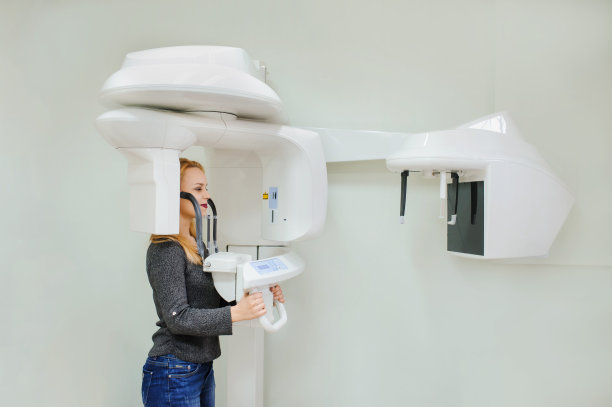Summary: Dental implantation is a significant procedure aimed at restoring oral functionality and aesthetics. Ensuring a successful journey requires well-planned precautions, which can be categorized into four main areas: thorough pre-surgical evaluations, optimizing post-operative care, adhering to a nutritious diet, and maintaining diligent oral hygiene practices. Each of these aspects is crucial for fostering optimal healing and long-lasting results. By understanding and implementing these essential precautions, patients can enhance their overall oral health while minimizing potential complications, ensuring that their dental implant experience is as successful as possible.
1. Comprehensive Pre-Surgical Evaluations

Before undergoing dental implantation, it is crucial for patients to have a thorough evaluation by their dental professional. This step typically includes a detailed medical history and a physical examination to assess the health of gums and bones. Understanding any underlying health conditions, such as diabetes or heart disease, can help professionals tailor their approach and mitigate risks associated with surgery.
Diagnostic imaging, such as X-rays or 3D scans, plays a vital role in the pre-surgical evaluation. It allows the dental team to visualize the jawbone structure, ensuring that sufficient bone density exists for implant placement. This detailed imaging also aids in forming a strategic treatment plan, accounting for the placement angle and depth of the implant as needed.
Patients should also engage in open communication with their dentist regarding any medications or supplements they are currently taking. Certain substances can interfere with healing or pose risks during surgery. By disclosing this information, patients and professionals can work together to develop tailored recommendations leading to safer and more effective outcomes.
2. Optimizing Post-Operative Care
Once the dental implant procedure is complete, the focus shifts to post-operative care. Following the dentists post-surgery instructions is essential for successful healing. This typically includes prescribed medications, such as antibiotics or pain relievers, to manage discomfort and prevent infection. Adhering to these guidelines not only promotes healing but also reassures the patients well-being.
Rest is critical in the days following the surgery. Patients should avoid vigorous activities and strenuous exercise, as these can increase swelling and potentially disrupt the healing process. Gentle activities can often be resumed within a few days, but its imperative to listen to the body and allow ample recovery time, as this varies for each individual.
Icing the area around the surgery site can help reduce swelling and discomfort during the first 48 hours post-surgery. Moreover, avoiding hot liquids and certain foods may help swimmers mitigate discomfort and prevent any injury to the sensitive area where the implant was placed. Consistent monitoring for any unusual symptoms, such as prolonged bleeding or increased swelling, is crucial for promptly addressing potential complications.
3. Embracing a Nutritious Diet for Healing
Diet plays a fundamental role in the healing process following dental implantation. A well-balanced and nutritious diet promotes tissue regeneration and helps support the body’s natural healing processes. Soft, nutrient-dense foods are ideal choices during the initial healing stages, as they can prevent discomfort around the surgical site while still providing essential vitamins and minerals.
Foods rich in calcium and vitamin D, such as dairy products, leafy greens, and fortified foods, are particularly beneficial in promoting bone health. Proteins found in lean meats, legumes, and nuts support cellular repair and growth, which is crucial during the recovery phase. Staying well-hydrated is equally essential; drinking plenty of water can facilitate healing and boost overall well-being.
Additionally, avoiding hard, sticky, or sugary foods can prevent undue stress on the implant and reduce the risk of complications, such as infections. Modifying one’s diet to include more antioxidants, found in fruits and vegetables, can also accelerate healing and bolster oral health, ensuring a successful dental implantation journey.
4. Maintaining Diligent Oral Hygiene Practices
Effective oral hygiene is integral to the success of a dental implant and should be maintained throughout the healing process and beyond. Patients must gently clean the surgical site and surrounding teeth, following their dentists recommended cleaning regimen. Typically, this includes using a soft-bristle toothbrush and possibly an antimicrobial mouthwash to minimize the risk of infection.
Regular dental check-ups are essential for monitoring the implant throughout the healing process. These visits allow dental professionals to assess the implants integration with the bone and identify any concerns early on. By following through with these appointments, potential issues can be addressed before escalating into more serious complications.
Patients should also abstain from tobacco and excessive alcohol consumption, as these habits can hinder healing and negatively affect oral health. Establishing healthy, long-term oral hygiene practices post-implantation is vital for ensuring the lasting success of the dental implant and maintaining overall oral health.
In conclusion, embarking on a dental implantation journey necessitates careful consideration of various pre- and post-operative precautions. By engaging in comprehensive evaluations, following meticulous post-operative care, adopting a nutritious diet, and maintaining vigilant oral hygiene, patients can ensure optimal healing and oral health. These essential practices safeguard the investment made in dental implants while enhancing the overall experience.
This article is compiled by Vickong Dental and the content is for reference only.
Vickong Dental
Vickong Dental is a large medical group established in Hong Kong in 2008 by professors from well-known medical universities in Guangdong and Hong Kong, as well as medical doctors from key national '985' universities (including Master's supervisors and senior professors). The chain of branches brings together expert dentists with PhDs and Master's degrees from Hong Kong and Mainland China, committed to providing high-quality dental treatment.
"Vickong Dental Practices the University Motto of 'Healing and Serving Society,' with a Stable Operation for Sixteen Years. It Has Been honored with Hong Kong Enterprise Leaders's Choice,' and is a Global Trusted Implant Center for the Nobel Implant System. Recommended by Hong Kong Metro Broadcast and Guangdong Television, it Serves Customers from Over Thirty Countries and Regions, Gaining the Trust and Favor of Citizens from the Guangdong-Hong Kong-Macau Greater Bay Area and Surrounding Cities.

Thousands of customers' unanimous praise
The most recognized and highly recommended dental service by customers in the Guangdong-Hong Kong-Macau Greater Bay Area
We Ensure You Receive Detailed Care and Attention Here
Hong Kong standards, Shenzhen prices, Your Trusted English-speaking dentists

Vickong Dental Medical-Grade Instrument Disinfection Process
Vickong Dental Medical-Grade Instrument Disinfection Process

Vickong Dental Chain: A Warm and Comfortable Environment for Treatment






Appointment Hours

Q&A
Why choose Vickong Dental?
Vickong Dental practices the university motto 「Medicine to Benefit Society」, with each branch bringing together highly qualified dentists with doctoral and master’s degrees from Hong Kong and the Mainland, and has maintained seventeen years of steady operation。Recipient of 「2024 Hong Kong Enterprise Leaders Brand」, 「2025 Hong Kong Enterprise Leaders Brand」, a Nobel Biocare Global Trusted Implant Center, and a brand recommended by Metro Radio Hong Kong and Guangdong TV。
To date, we have served customers from more than thirty countries and regions,earning exceptionally high word-of-mouth recognition and trusted recommendations from residents across the Guangdong-Hong Kong-Macao Greater Bay Area and surrounding cities
We have eight major branches in Zhuhai、Shenzhen,and a consultation and service assurance center in Hong Kong,so you can book a free consultation at any time for any questions,which is very reassuring.
If I do not accept the quotation after the CT scan, will I be charged??
No! As long as the actual treatment has not started, you will not be charged any fees.
Will there be any additional charges during the treatment process?
No, there won’t be any additional charges. Before treatment begins, we will clearly explain the treatment plan and its corresponding fees. Only after the patient agrees and signs the consent form will we proceed with the dental service.
Can I pay in Hong Kong dollars?
Yes. Vickong Dental accepts payment in Hong Kong dollars. The amount will be converted based on the exchange rate of the day, and the applicable rate will be clearly communicated to you in advance.
Can I reschedule my appointment at any time?
Yes. Please contact us via **WeChat** or **WhatsApp** as early as possible, providing your original appointment time and details, along with your preferred new date and time slot for rescheduling.













